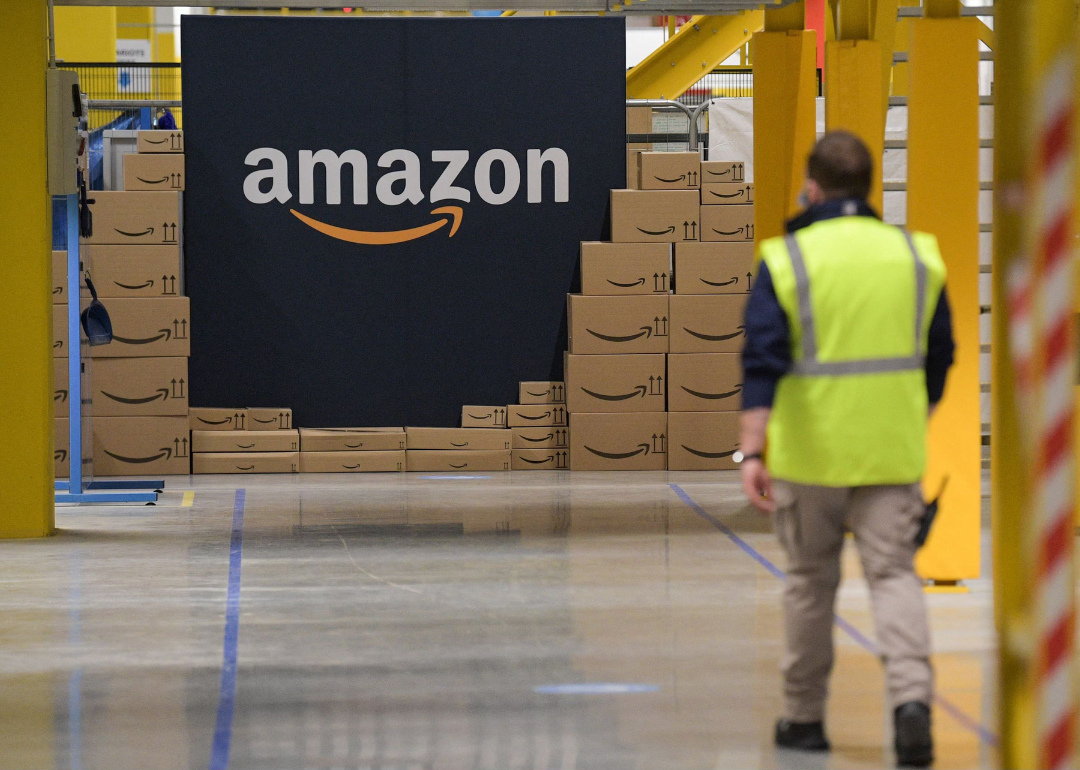
23 major online retailers, ranked from worst to best by customers
23 major online retailers, ranked from worst to best by customers
In 1982, several years before the internet was widely available to the public, the first e-commerce company, the Boston Computer Exchange, opened for business. The platform, which allowed computer geeks to buy and sell used parts, functioned like an old-school bulletin board: sellers would post their wares, and buyers would have to call to make a purchase and then pay via a bank or mailed check. As the internet developed and expanded, more folks became interested in the possibility of having entire transactions take place on the World Wide Web, which paved the way for the launch of websites like Amazon and eBay in the mid-'90s.
Today, online shopping has become a core pillar of our buying habits. According to Capital One, more than 84% of Americans shop online as of 2025. Ecommerce is all the more prevalent at this time of year, as Cyber Monday has upstaged Black Friday as the biggest sales day of the holiday season. In December 2025, Adobe reported that American consumers spent a whopping $14.25 billion in digital sales on Cyber Monday alone. The National Retail Federation also found that nearly 135 million shoppers bought something online over the course of Thanksgiving weekend, boosting the overall number of holiday shoppers to a record-setting 203 million.
Our online shopping habits are unlikely to be curbed anytime soon. Online retailers have offered significant customer benefits for years, including a significantly wider array of available products and the sheer convenience factor. On the other hand, downsides have been increased greenhouse gas emissions and excessive packaging waste. Fraud is also a significant concern, which is why indicators like the American Customer Satisfaction Index can be so helpful. These rankings can help consumers pinpoint which online retailers are trustworthy, better for the environment, and will meet their shopping goals.
Stacker ranked 23 major online retailers using data from the American Customer Satisfaction Index. Stores are ranked by 2025 customer satisfaction, and ties were broken by the higher percent change in customer satisfaction over the last year, with any further ties remaining. The retailers included are the ones for which the ACSI received enough responses to rank customers' opinions.
From powerhouses like Amazon and Target to lesser-known retailers like Newegg, read on to see where most consumers agree you should be clicking "add to cart."
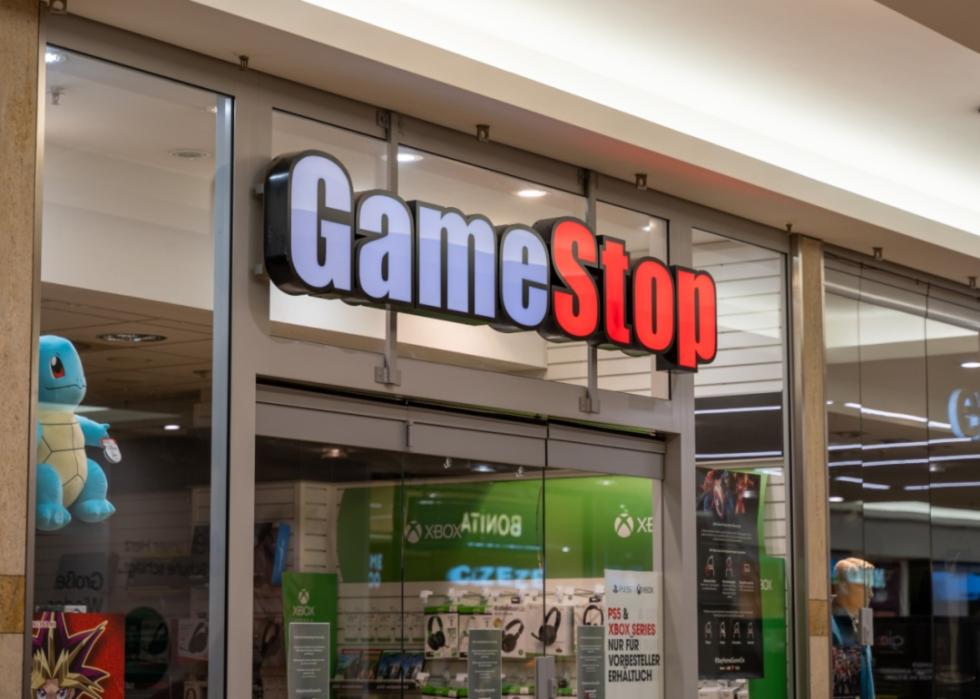
#23. GameStop
- 2025 customer satisfaction: 69%
- Change from 2024: -9%
- Category: online technology and office
GameStop can trace its origins back to 1984, when two Harvard Business School classmates opened a software retail store called Babbage's. Though video games quickly became a staple for the company—by 1991, games accounted for nearly two-thirds of the retailer's sales—the store didn't officially change its name until 2001, when preparations were made to take it public. Today, there are just over 4,000 physical GameStop locations around the world. While that's certainly a sharp drop from its heyday, consumers still shop here because of the store's loyalty program, rare and collectible stock, trade-in service, and the fact that it is, in many places, the only physical game-centered store chain still standing.
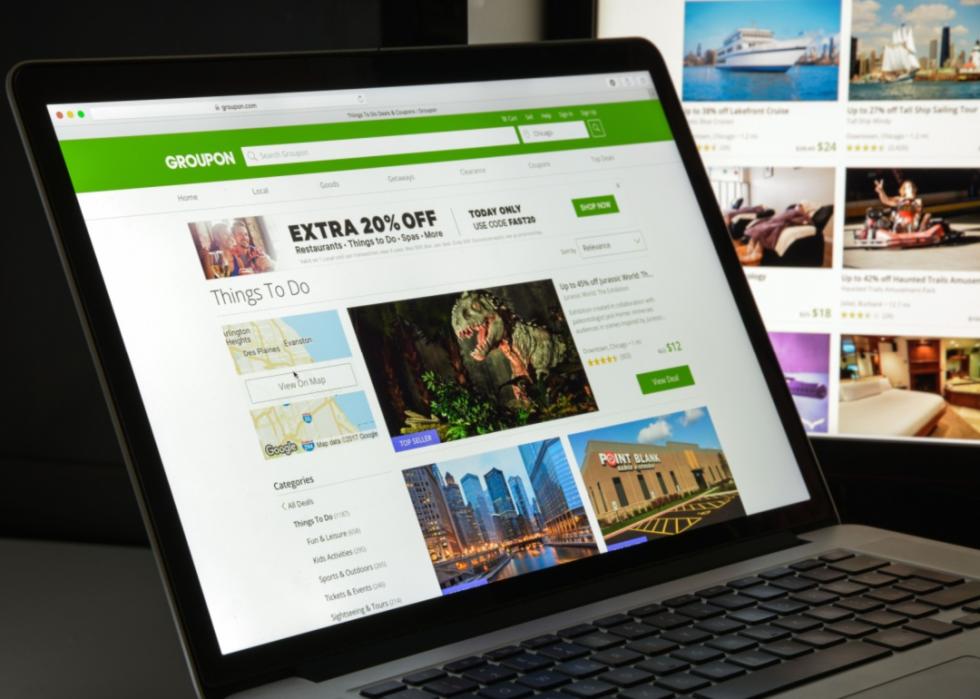
#22. Groupon
- 2025 customer satisfaction: 70%
- Change from 2024: -11%
- Category: online specialty
Rising from the ashes of a near-defunct start-up called The Point, Groupon is an internet-only platform that connects shoppers to heavily discounted experiences, travel, meals, and goods around the world. Officially launching in 2008, the company currently has 16.5 million active customers and operates in nearly 50 countries worldwide. Shoppers love the retailer for the steep discounts it provides, offering them access to things that may otherwise be out of their budget.
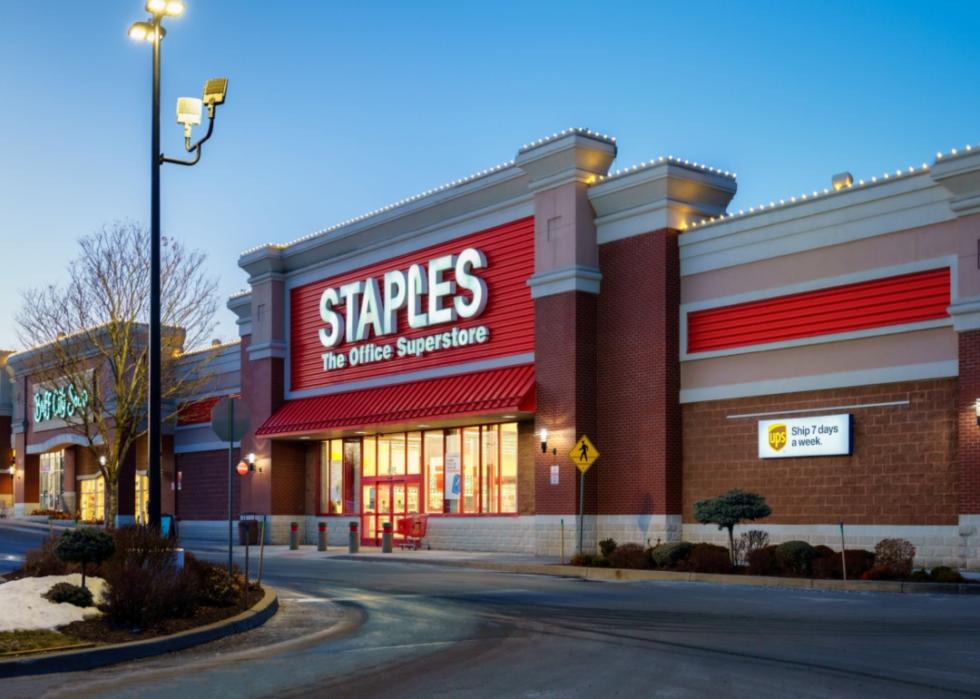
#21. Staples
- 2025 customer satisfaction: 72%
- Change from 2024: -9%
- Category: online technology and office
Office supply retailer Staples launched in 1986 as a specialty store designed to meet the needs of both big businesses and individual households. With an inventory covering everything from pens to desks, the company now has 1,000 physical locations across the U.S. Online shoppers love the next-day delivery available to 98% of the country, as well as the attentive customer service program that answers most digital queries in 30 seconds or less.
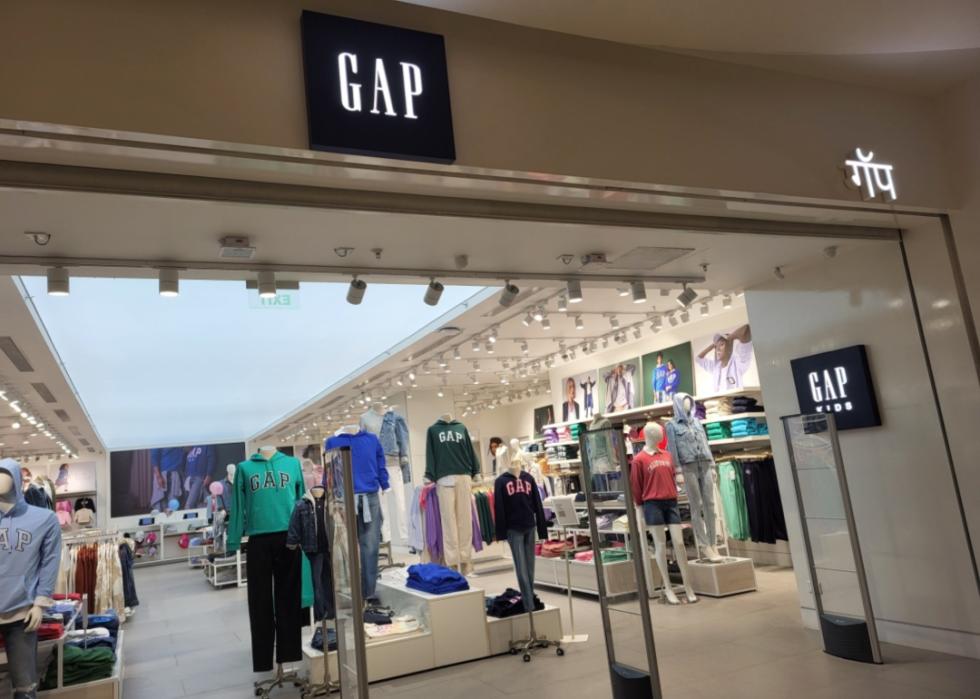
#20. Gap
- 2025 customer satisfaction: 72%
- Change from 2024: -6%
- Category: online apparel and shoes
When Don and Doris Fisher opened the first Gap location in 1969, they sold two things: men's jeans and records. Today, the company sells clothes and accessories for the whole family at its 3,000 physical locations and on its e-commerce site, which launched in 1994. Buyers laud the company for its timeless and trend-forward styles, as well as its price point and durability.
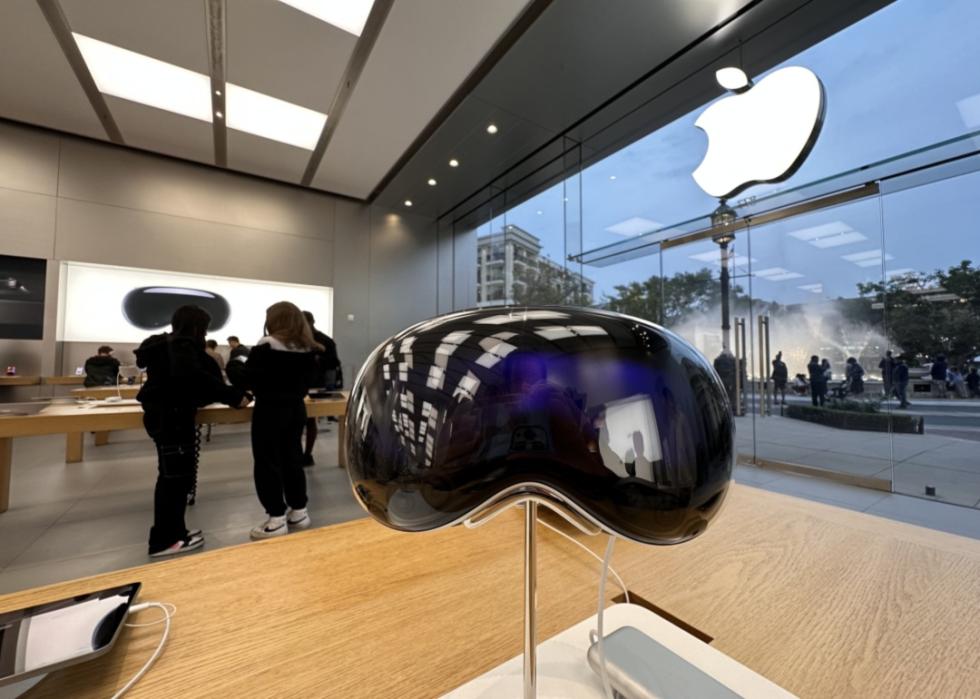
#19. Apple Store Online
- 2025 customer satisfaction: 74%
- Change from 2024: -5%
- Category: online technology and office
Most shoppers know the broad strokes of Apple's history—that it was founded in 1976 by two college dropouts, Steve Jobs and Steve Wozniak, intent on creating a computer that would appeal to the average person—but far fewer are aware of the company's retail background. The brand didn't open its first brick-and-mortar stores until 2001, having sold its products through mom-and-pop shops and its website (registered in 1987) in its early years. Today, there are over 500 Apple stores across 27 countries, and shoppers love them for many of the same reasons they love the brand itself: their ease of navigation, attention to customer's needs, and strong sense of identity.
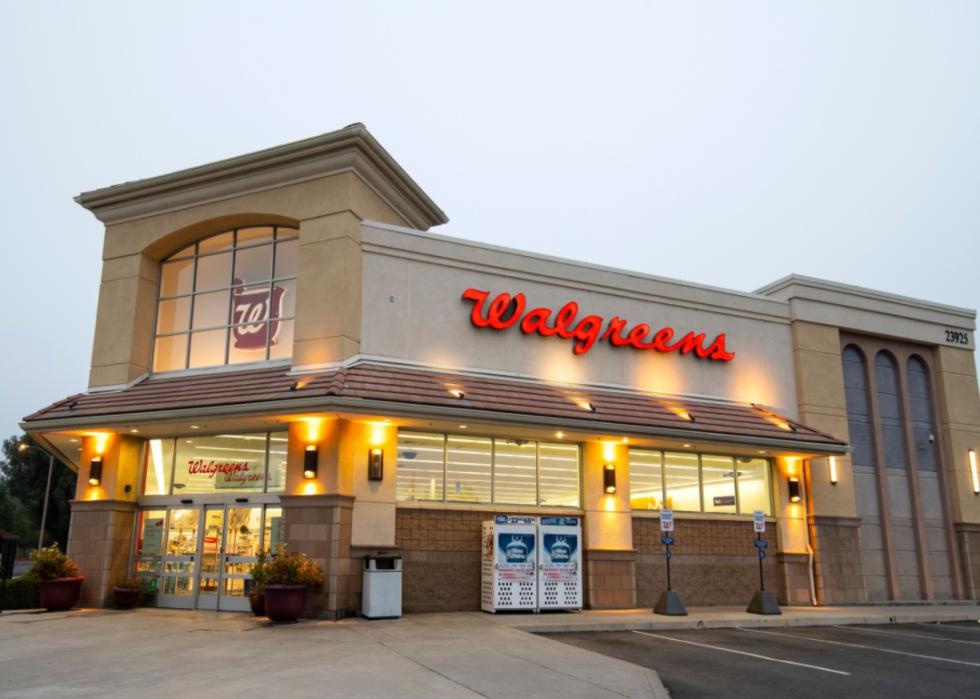
#18. Walgreens
- 2025 customer satisfaction: 74%
- Change from 2024: 0%
- Category: online specialty
In 1901, with the purchase of a small pharmacy in the Chicago area, Charles R. Walgreen Sr. started the Walgreens drugstore chain. Today, the company operates just over 8,700 brick-and-mortar stores across all 50 states, and over three-quarters of Americans live within 5 miles of one of the company's physical locations. In 1999, Walgreens launched a website, giving customers a way to check on their prescriptions and fill their medicine cabinets from the comfort of their own homes. Regular shoppers praise the knowledgeable pharmacists and the wide variety of products, including store- and name-brand items, available through the retailer.

#17. Temu
- 2025 customer satisfaction: 75%
- Change from 2024: Not applicable
- Category: online multimarket
Temu may only be two years old, but it's fast become a major player in the online shopping world. The app is Amazon's biggest competitor, allowing China-based vendors to sell and ship directly to customers around the world without having to rely on distributors. That makes the items far more affordable—and therefore appealing—for shoppers. As a cherry on top, Temu has given free items to shoppers who promote the app on social media and get others to sign up. But it's not all good news for Temu: The company has been met with a slew of issues stateside, for everything from their loophole in evading tariffs to their poor customer service.
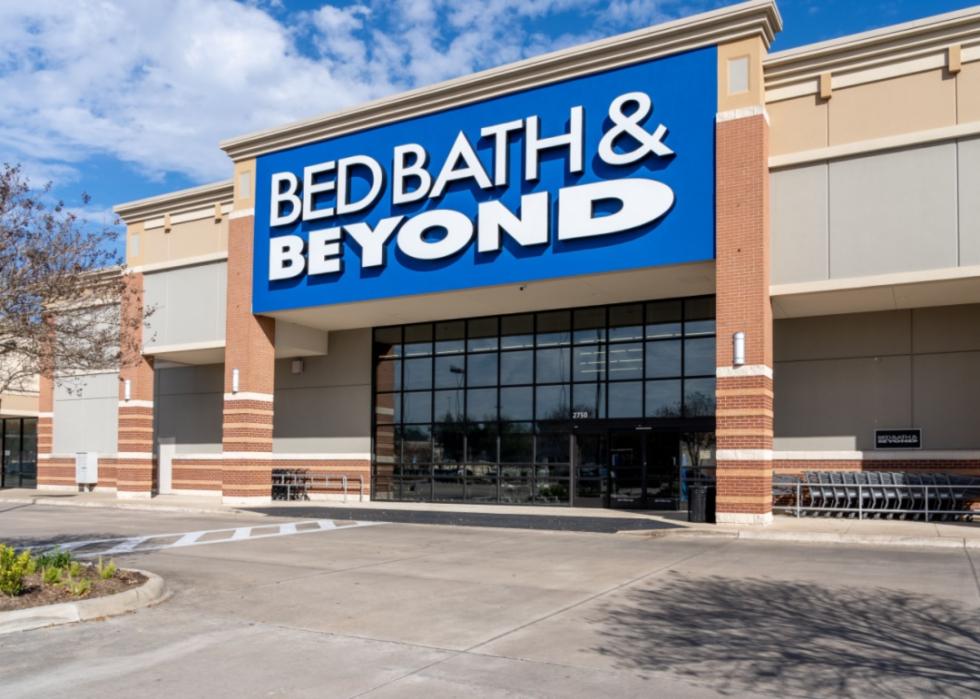
#16. BedBathandBeyond.com
- 2025 customer satisfaction: 75%
- Change from 2024: -5%
- Category: online home improvement and decor
Of all the companies on this list, Overstock has the muddiest history. Founded in 1997 as D2: Discount Direct, which was essentially an online flea market, Patrick M. Byrne and Jason Lindsey bought the company and renamed it in 1999. From there it became a virtual outlet mall, where individual retailers sold their wares and the Overstock team handled payment details and customer service.
In 2023, when Bed Bath & Beyond went bankrupt, Overstock acquired the intellectual property and renamed themselves once again. Now customers can expect the best of both worlds when they shop here: Overstock's traditionally wallet-friendly array of products (which include everything from kitchen wares to fine jewelry) and Bed Bath & Beyond's famous loyalty program and customer service department.
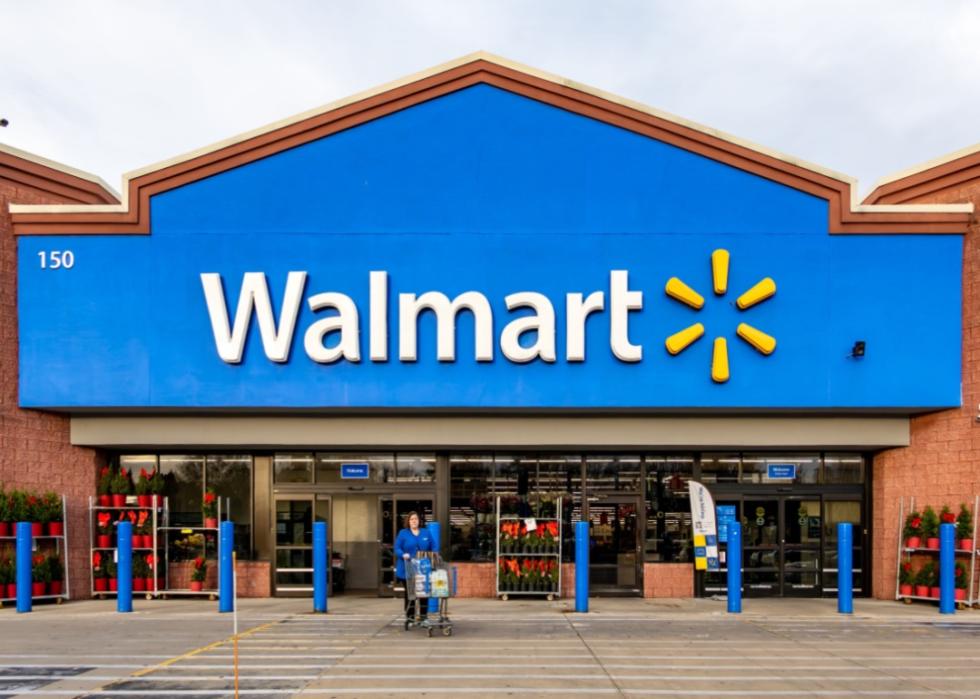
#15. Walmart
- 2025 customer satisfaction: 75%
- Change from 2024: -1%
- Category: online multimarket
In 1962, Sam Walton held the ribbon-cutting ceremony for the first Walmart location in Rogers, Arkansas. Selling everything from groceries to homewares, the company was primed for quick growth, hitting the $1 billion sales mark by 1980. Walmart.com launched in 2000, allowing customers who didn't want to make the trek to one of the brand's 10,000 physical locations a more convenient way to order what they needed. Today's shoppers love the brand for its convenience, low prices, and the fact that it offers perks like free two-day shipping without exorbitant membership costs.
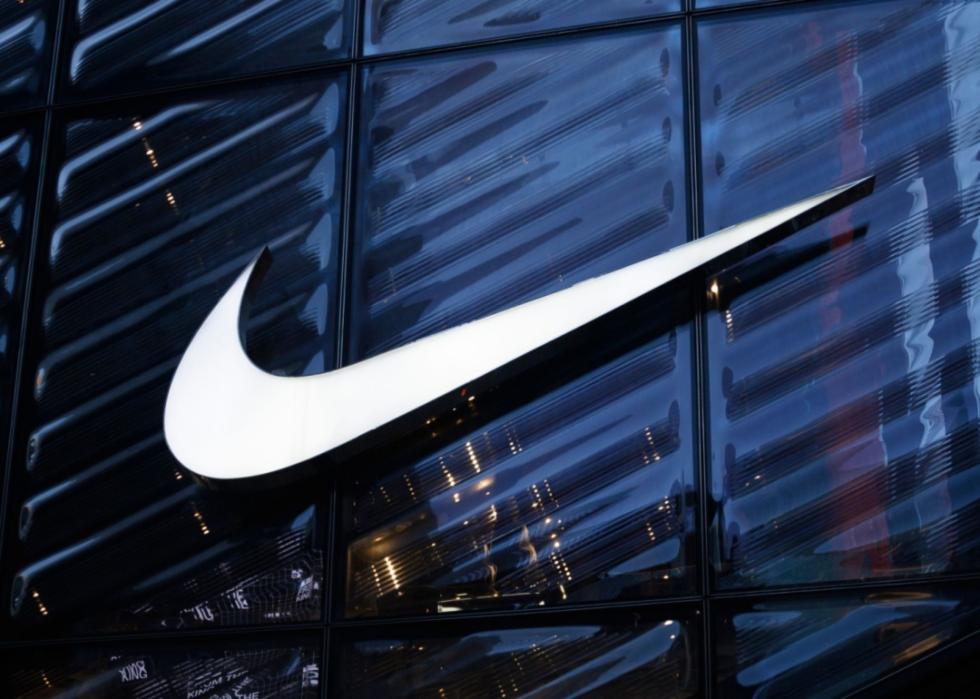
#14. Nike
- 2025 customer satisfaction: 76%
- Change from 2024: -5%
- Category: online apparel and shoes
Originally dubbed Blue Ribbon Sports, Nike is one of the premier athletic brands on the market today. Founded by Phil Knight and Bill Bowerman in 1964, the company outfits everyone from casual athletes to professional teams and even the U.S. Olympic squad. Shoppers love that they can buy high-tech, comfortable, and durable clothes and shoes from the brand's 1,000 stores, as well as branded apparel and celebrity collaborations from the company's website.
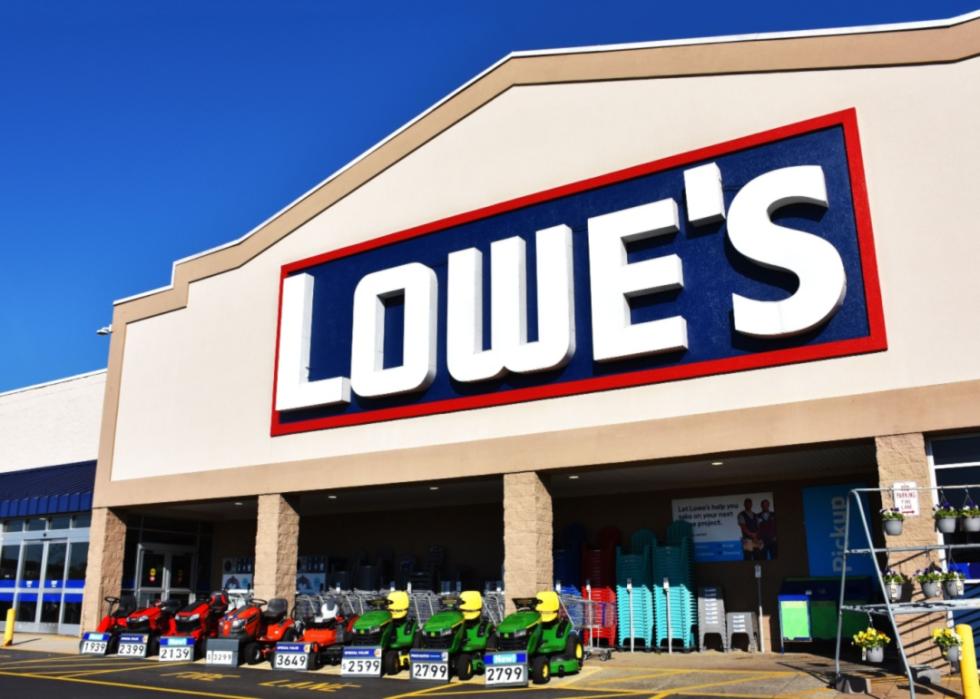
#13. Lowe's
- 2025 customer satisfaction: 76%
- Change from 2024: -3%
- Category: online home improvement and decor
The second-largest home improvement retailer in the world behind The Home Depot, Lowe's began in 1921 as a general and hardware store in North Carolina. With 1,700 locations across the U.S., Canada, and Mexico, the brand is most loved for its wallet-friendly offerings. With over 16 million weekly customers, Lowe's online shoppers can rest assured they're in good company.
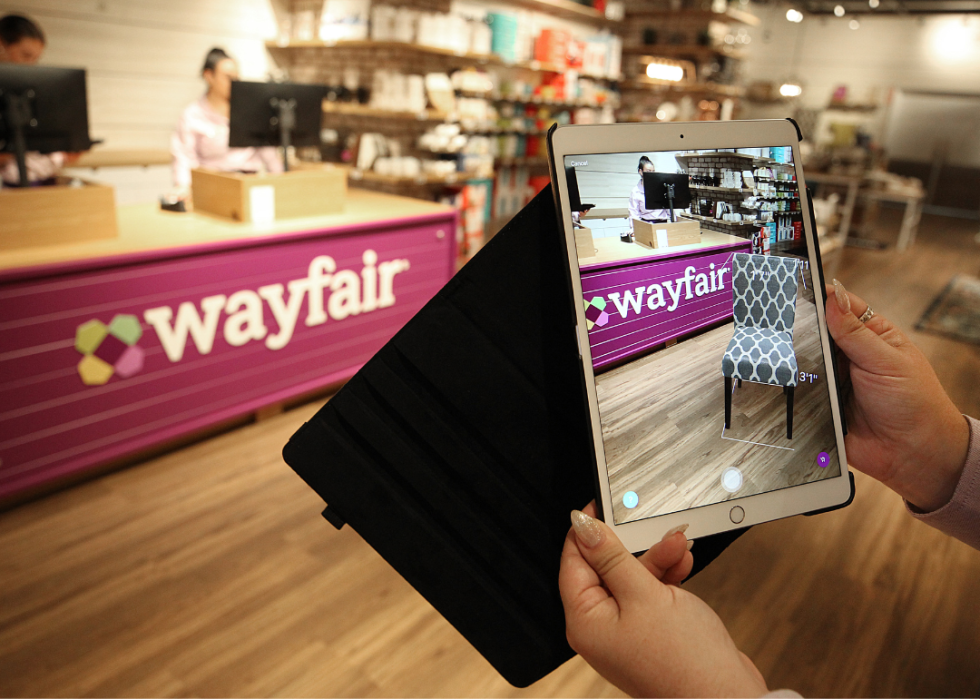
#12. Wayfair
- 2025 customer satisfaction: 76%
- Change from 2024: -1%
- Category: online home improvement and decor
Unlike many of the other retailers on this list, Wayfair began as an e-commerce site rather than a physical store. Starting in 2002, Niraj Shah and Steve Conine launched a series of over 200 specialized websites that sold everything from barstools to living room couches. In 2011, the company rebranded, bringing all of its various entities together under the Wayfair name. The first physical Wayfair location opened in 2024, selling all of the quality, affordable housewares the brand has become known for, but passing the logistics of delivery and assembly (which has long been a cornerstone for them) off to the consumer.
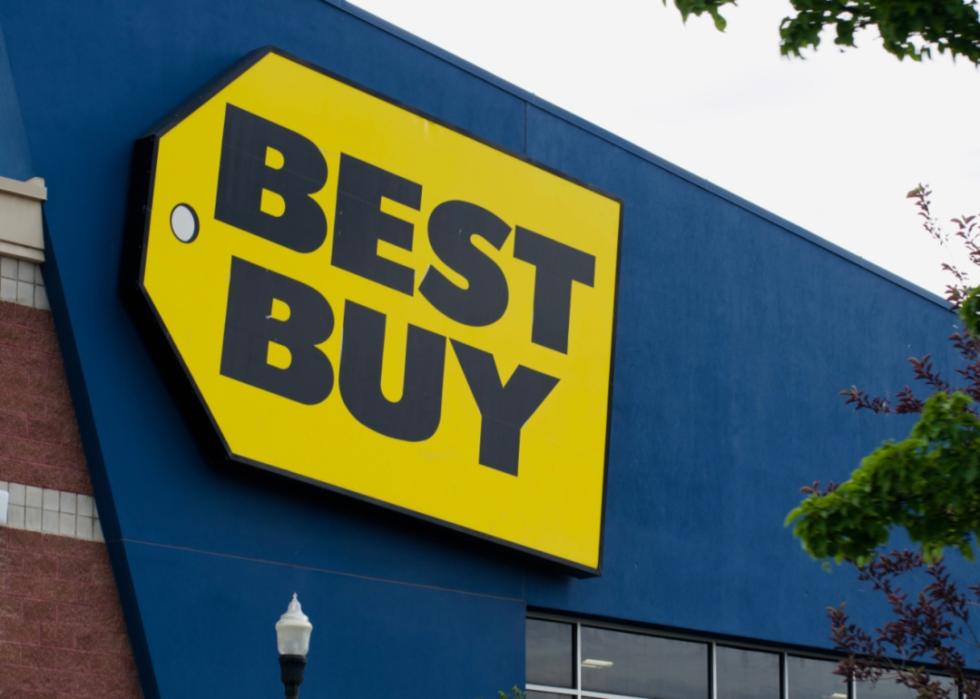
#11. Best Buy
- 2025 customer satisfaction: 77%
- Change from 2024: -3%
- Category: online technology and office
Before its rebranding in 1983, Best Buy was a chain of audio specialty stores called Sound of Music founded in St. Paul, Minnesota. Following its rebrand, the company expanded its stock to include all sorts of home appliances and tech in no-frills environments, allowing costs to lower. There are currently over 1,110 brick-and-mortar stores across the U.S. and a handful of other countries, but the number has been in steady decline as the company and its shoppers prioritize online shopping and the various discounts that it brings.
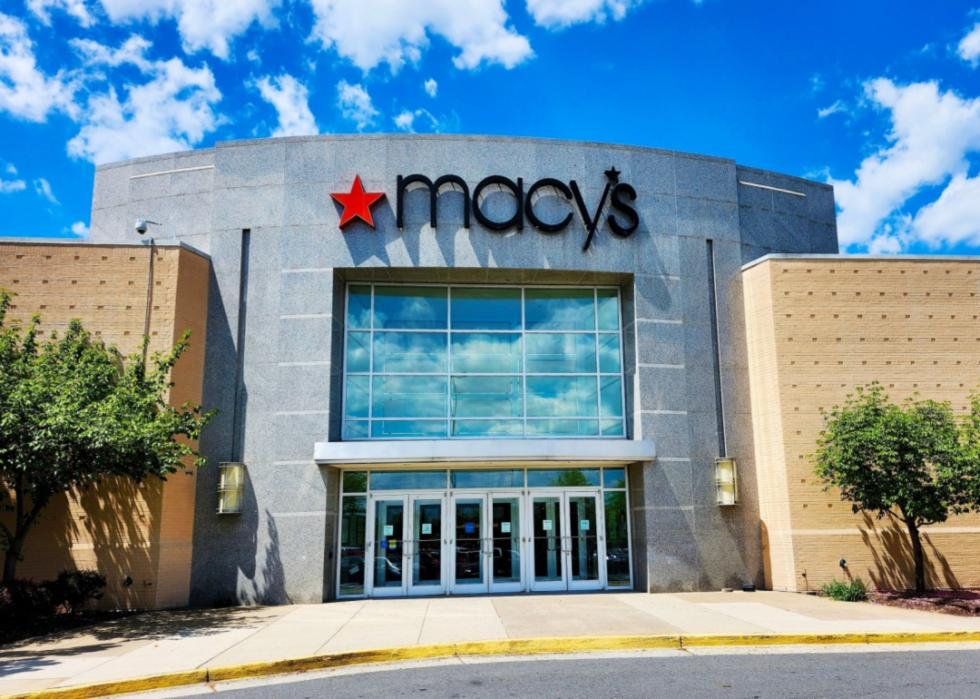
#10. Macy's
- 2025 customer satisfaction: 77%
- Change from 2024: -1%
- Category: online apparel and shoes
Known as "America's Department Store," Macy's began as a dry goods store in lower Manhattan in 1858. It wasn't until 1924, when its flagship Herald Square location became the largest store in the world and the first store-sponsored Thanksgiving Day parade was held, that it became a major national brand. Today, there are around 500 physical Macy's locations, as well as an e-commerce site that launched in 1996. Shoppers love the wide variety of options Macy's carries, from designer brands to more wallet-friendly lines, as well as its excellent customer service department.
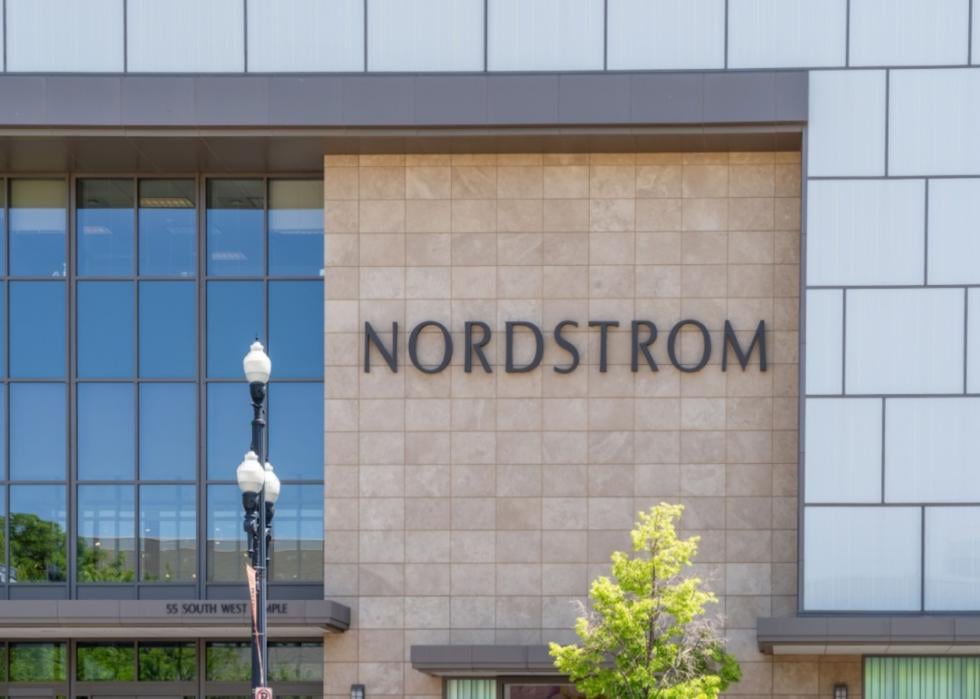
#9. Nordstrom
- 2025 customer satisfaction: 78%
- Change from 2024: -3%
- Category: online apparel and shoes
In 1901, John W. Nordstrom and his business partner opened the first Seattle-area shoe store that would become the start of the Nordstrom department store chain. Now selling both designer and house brand clothes for men, women, and children, as well as cosmetics, jewelry, shoes, and some homewares, Nordstrom is one of the larger department stores left in the country. As of October 2023, there are 93 Nordstrom locations and 258 Nordstrom Rack locations (which sell discounted merchandise and specially made items), which customers love for their variety and dedication to being on-trend.
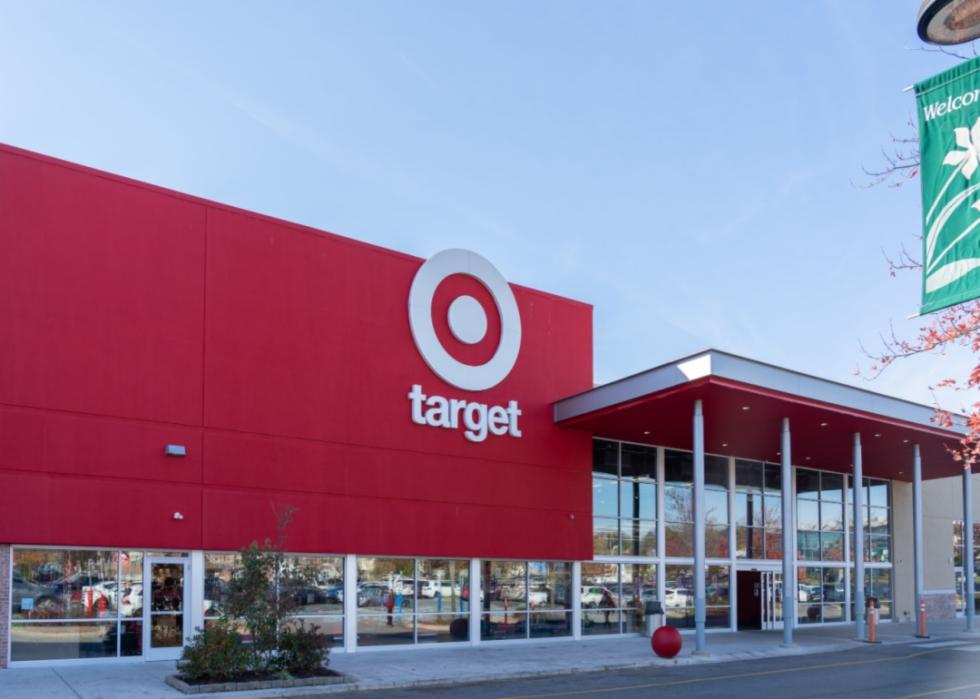
#8. Target
- 2025 customer satisfaction: 78%
- Change from 2024: 0%
- Category: online multimarket
Target can trace its roots back to 1902, when founder George Draper Dayton opened the first locations of the Dayton Dry Goods Company. Sixty years later, the corporation launched the first official Target store, drawing huge crowds with its department store features and discount retailer prices. Today, shoppers still love the red-and-white brand (at all 2,000 of its locations) for those exact reasons. Its handy e-commerce site, which launched in 1999, and mobile app, which launched in 2009, as well as its membership loyalty program, are just icing on the cake.
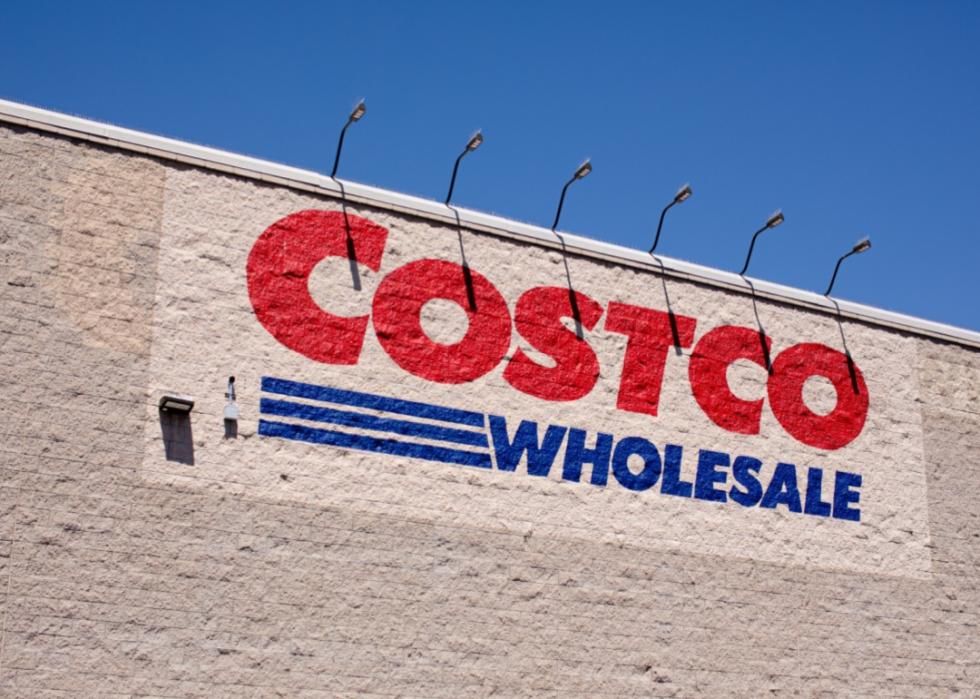
#7. Costco
- 2025 customer satisfaction: 79%
- Change from 2024: -2%
- Category: online multimarket
A membership-based warehouse club, Costco offers shoppers wholesale prices on everything from rotisserie chickens to furniture. Founded in 1976, the company's first business model involved selling exclusively to other small businesses, but it didn't take long before they realized the demand was higher amongst individual shoppers—and the rest is history. Customers love shopping on Costco's website and its over 800 physical locations for the low prices, excellent customer service, and the knowledge that the store has a reputation for treating its employees exceptionally well.
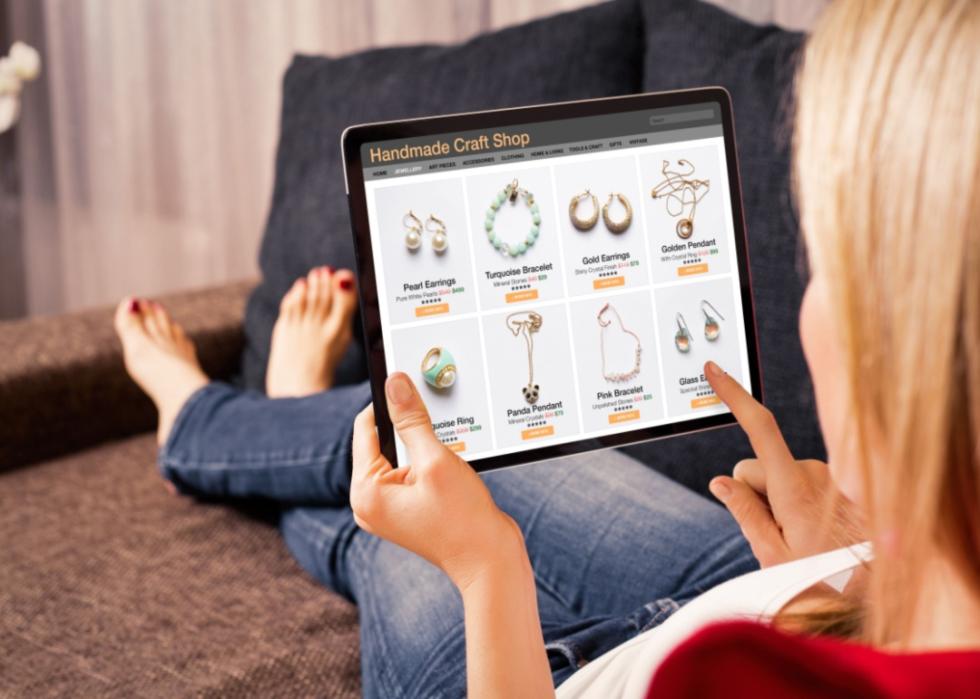
#6. Etsy
- 2025 customer satisfaction: 79%
- Change from 2024: -1%
- Category: online specialty
Etsy is an online artisanal marketplace that allows shoppers to source handmade and vintage items from individual sellers around the world. Beginning in a Brooklyn apartment in 2005, the company has no physical stores, though it hosted a handful of holiday pop-ups in major cities over the last decade. Etsy has an estimated 96 million active buyers and about 9 million active sellers, meaning shoppers are sure to find almost anything they wish to buy. That huge amount of variety, as well as the knowledge that they're supporting individual artisans rather than major retailers, is exactly why shoppers love the platform.
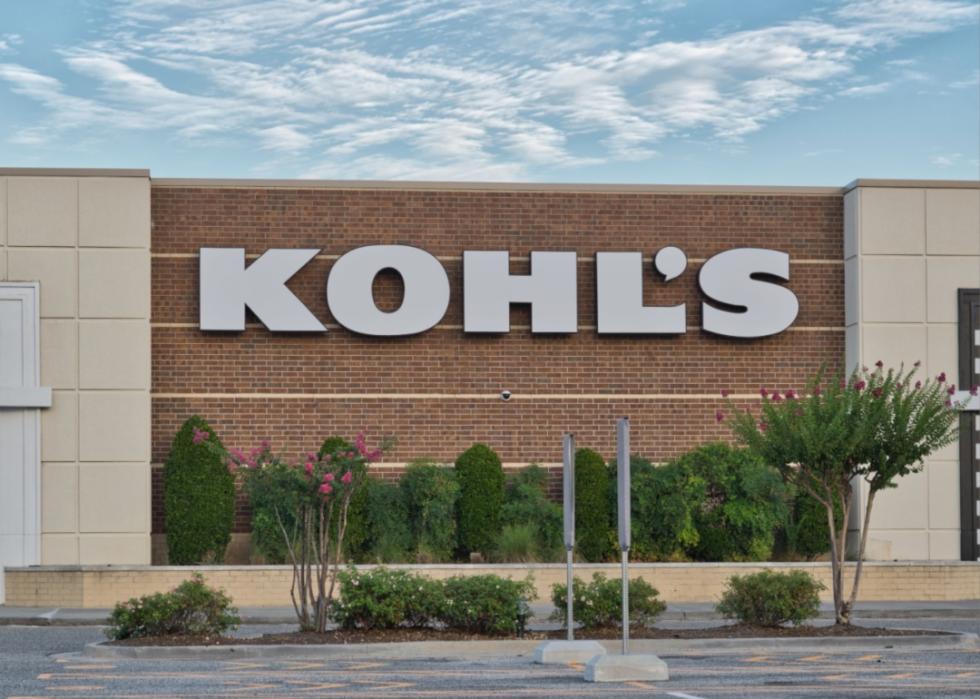
#5. Kohl's
- 2025 customer satisfaction: 79%
- Change from 2024: 0%
- Category: online apparel and shoes
Kohl's started as an immigrant-owned, local grocery store chain in the 1920s before expanding to include a department store extension in 1962. Modern Kohl's stores eliminated the grocery aspect but retained the budget-friendly homewares and clothing departments shoppers love. With over 1,100 stores in 49 states and a website that launched in 2001, shoppers have easy access to national brands and steep discounts wherever they may live.
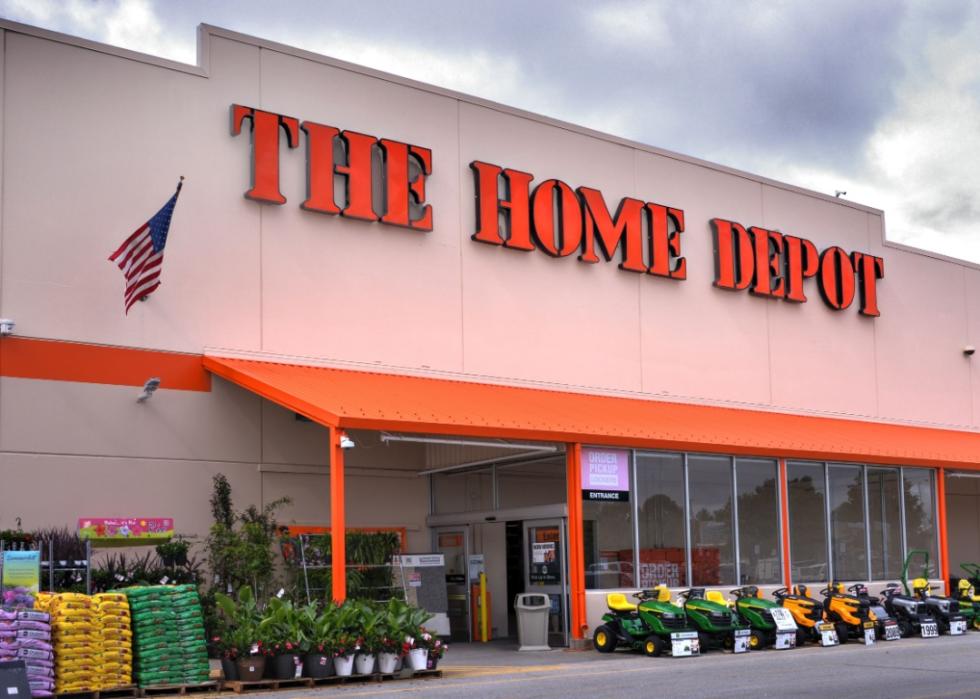
#4. The Home Depot
- 2025 customer satisfaction: 79%
- Change from 2024: +3%
- Category: online home improvement and decor
The world's largest home improvement retailer, The Home Depot was founded by Bernie Marcus and Arthur Blank in 1978. Currently with over 2,300 physical locations and an e-commerce site that launched in 2000, the cavernous warehouses sell everything one could need for their next home project. Frequent shoppers love the knowledgeable staff and the massive variety of products (with over 1 million different items sold online) available at their fingertips.
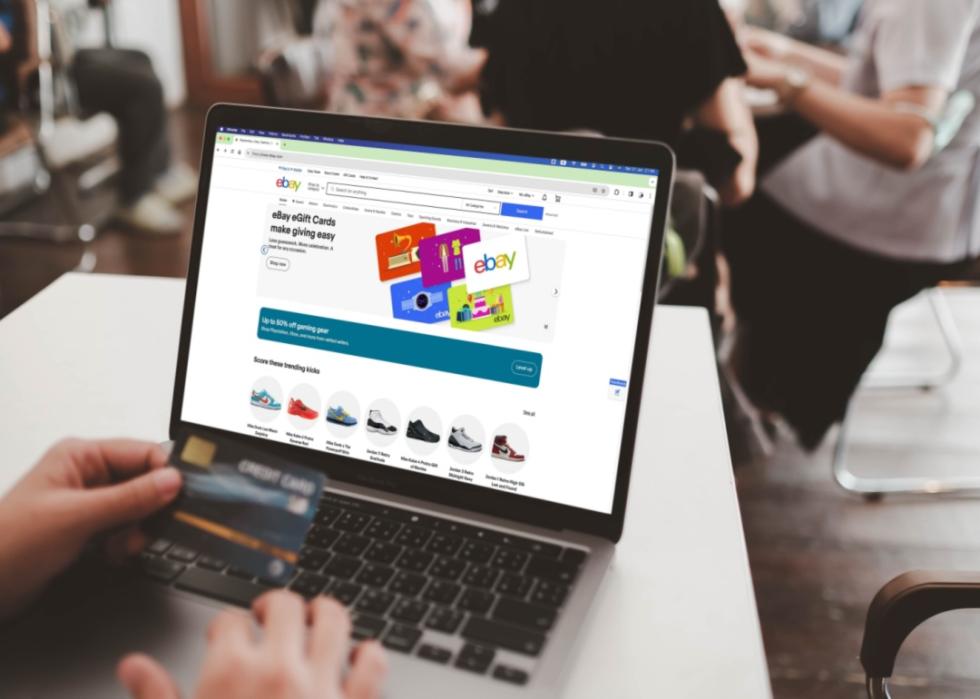
#3. eBay
- 2025 customer satisfaction: 81%
- Change from 2024: 0%
- Category: online multimarket
Like Etsy, eBay is a shopping platform that connects sellers with buyers from around the world. Founded in 1995, the website is primarily for resales, hosting auctions for more high-demand items, and providing buy-it-now options for more common wares. With 132 million active users all searching for hidden gems, scoring treasures can sometimes be difficult, but the search is still substantially easier and more seamless on eBay than it would be in a typical brick-and-mortar store.

#2. Amazon
- 2025 customer satisfaction: 83%
- Change from 2024: 0%
- Category: online multimarket
When Amazon first came online in 1994, it was primarily an online bookseller, working to drive down costs for the avid reader. Thirty years later, the platform sells everything you could think of (in 2023 alone, it sold 4.5 billion items) and has a tech wing, a publishing company, and a streaming service, among other things. This wide variety of products and services, plus the ease and convenience of the ordering process and quick shipping times makes Amazon the most popular online retailer in the United States.
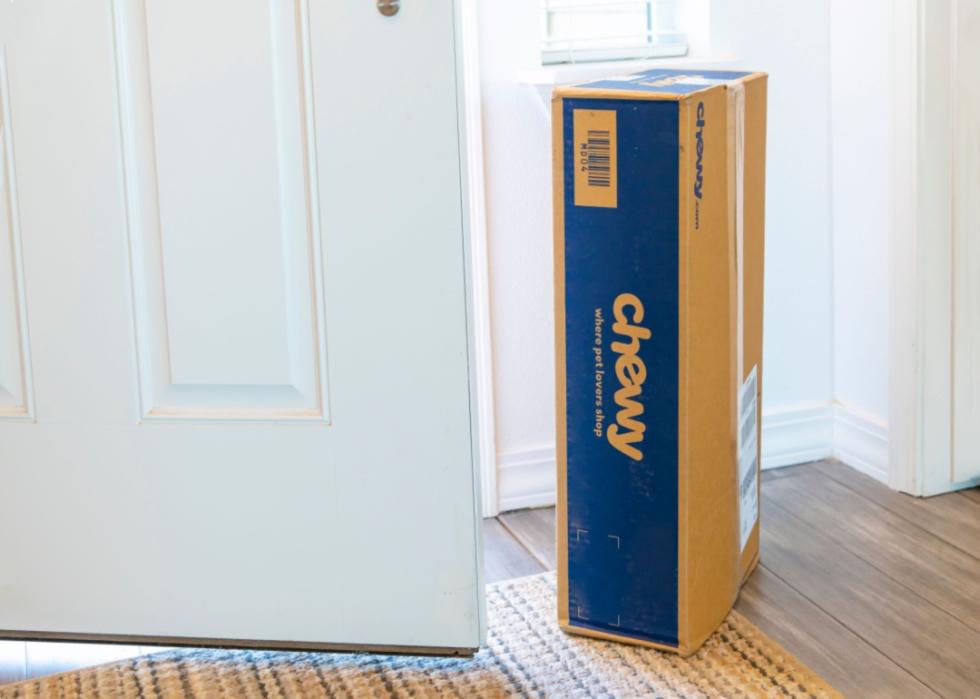
#1. Chewy
- 2025 customer satisfaction: 85%
- Change from 2024: 1%
- Category: online specialty
Founded in 2011, Chewy intended to be the online version of neighborhood pet stores. The company has no physical locations but sells 3,500 brands of pet food and supplies through its website. Free delivery on all orders, 24/7 customer service, and a 100% satisfaction guarantee policy are three big reasons customers fell so hard for the brand.
Story editing by Chris Compendio. Copy editing by Paris Close. Photo selection by Lacy Kerrick.



